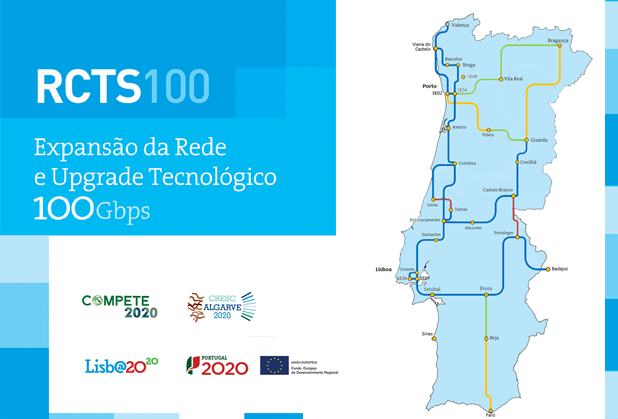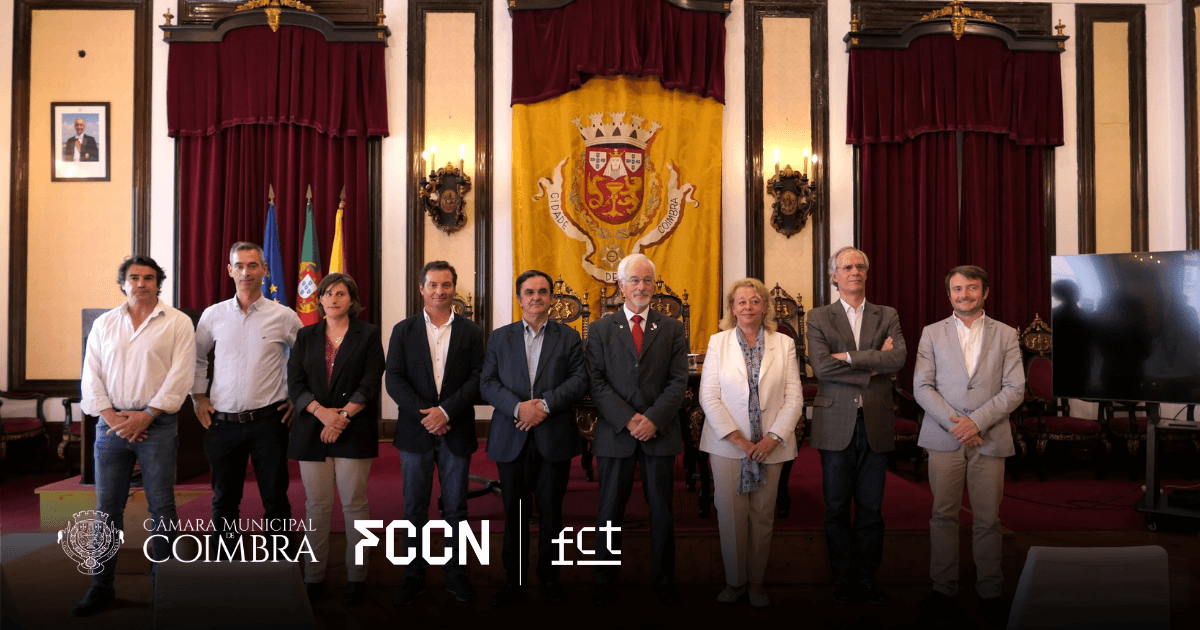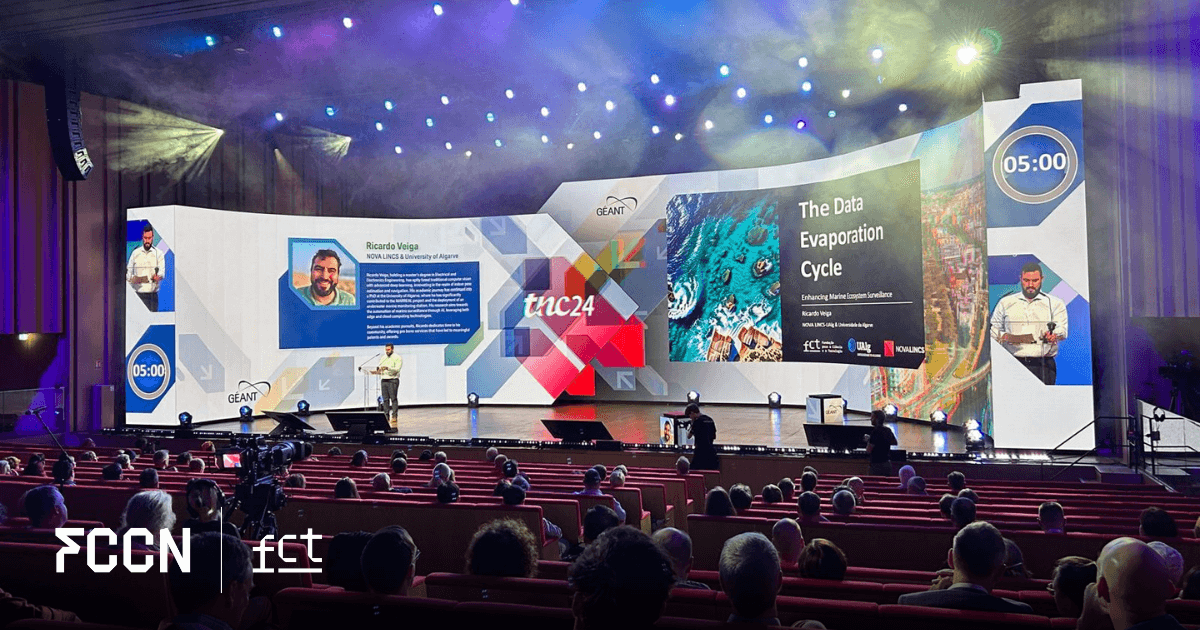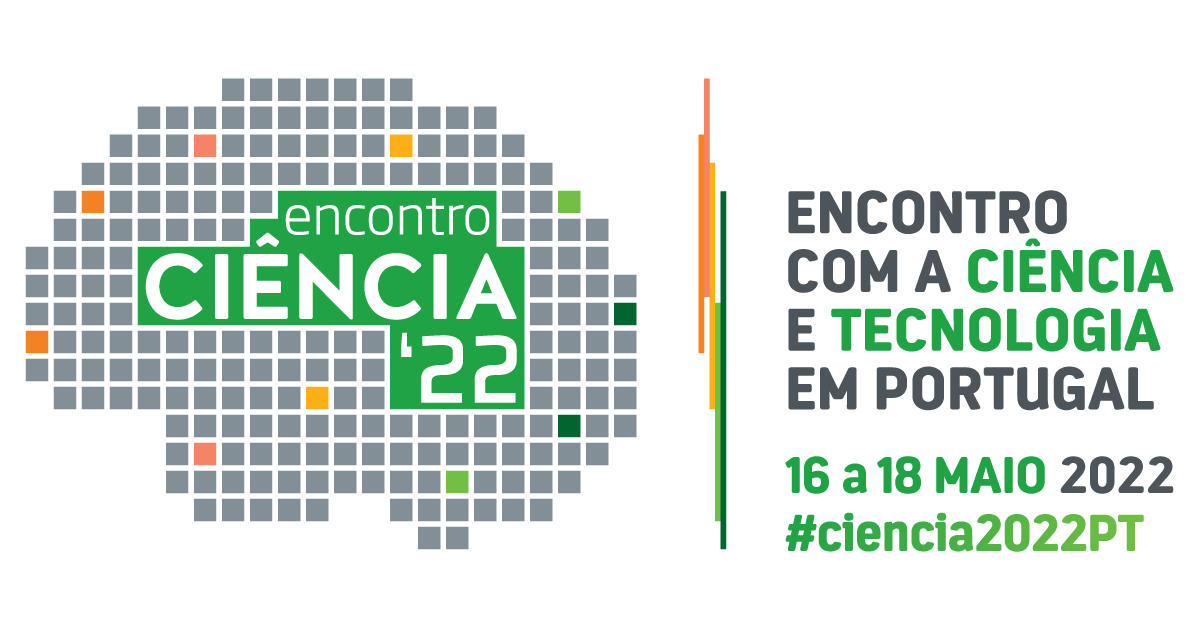Minister of Science, Technology and Higher Education, Manuel Heitor, inaugurates in Bragança and Vila Real the first steps of the RCTS100 project – an initiative of the FCCN Unit that will expand the fiber optic footprint of the national academic network (Science, Technology and Society Network – RCTS)
Two new facilities were opened in Bragança and Vila Real. upgrades access to the national academic network. The inauguration ceremonies, attended by the Minister of Science, Technology, and Higher Education, Manuel Heitor, marked a speed increase of 400% (from 2Gbps to 10Gbps), with a connection expansion to 100Gbps planned by September 2021.
These improvements are part of the RCTS100* project of the National Scientific Computing Unit of the Foundation for Science and Technology (FCCN Unit), responsible for the operation and management of the Science, Technology and Society Network (RCTS). This initiative, carried out under the National Roadmap for Research Infrastructures of Strategic Interest (co-financed by COMPETE 2020, Lisbon 2020, and Algarve 2020), will strengthen the infrastructure of this network.
The RCTS Network is the national academic network, ensuring interconnection and internet access for the teaching and research community. Thanks to this investment of approximately 17.2 million euros, the network will gradually be able to support multiple 100Gbps connections. The RCTS100 project is scheduled for completion in September 2021.
The impact of upgrades
In total, nine Higher Education entities will be covered by this project, thus seeing their links strengthened: Polytechnic Institute of Bragança (IPBraçança), Polytechnic Institute of Beja (IPBeja), Polytechnic Institute of Castelo Branco (IPCB), Polytechnic Institute of Cávado and Ave (IPCA), Polytechnic Institute of Viseu (IPV), Polytechnic Institute of Tomar (IPTomar), Polytechnic Institute of Guarda (IPG), University of Beira Interior (UBI) and University of Trás-os-Montes and Alto Douro (UTAD).
Thanks to this upgrade, These higher education institutions can ensure the strengthening and updating of their local networks. In addition to accelerating existing technological plans, this reinforcement also allows for more efficient use of the infrastructure provided by RCTS.
This upgrade is made possible by the various investments made in the entities covered by the RCTS100 project, such as update technological development of local networks, by increasing the switching capacity of networks to 10Gbps or 100Gbps, updating and expanding Wi-Fi networks (eduroam) and reinforcing security equipment.
The changes implemented will have an impact on the institutions' ability to accommodate the increased traffic generated by the greater number of devices connected to the network and the implementation of distance learning methodologies – namely, the greater use of e-learning services. streaming (whether in the classroom context or in the development of research work and projects).
Technology at the service of Education
The RCTS1000 project will provide a high-performance, high-quality network for the institutions involved. The provision of this infrastructure also aims to encourage the use of technology in the classroom to improve learning. Furthermore, with regard to scientific production, the provision of this new infrastructure will enhance participation in research projects with high connectivity requirements.
Likewise, at the level of backbone In the academic network, the activation of new fiber optic routes has already been guaranteed, creating two rings: the Beira Litoral ring (IPLeiria and IPTomar) and the Alto Alentejo ring (UÉvora, IPPortalegre, IPSetúbal, IPCasteloBranco, and IP Santarém). As a result, these seven RCTS entities now benefit from more resilient access to the academic network and the internet, as they now have two possible access routes to the network.
In terms of communication, these rings offer an advantage in terms of network redundancy, as a serious failure at one point in the ring does not result in a loss of connectivity for any of the entities served by this infrastructure. Therefore, the expansion of RCTS's fiber optic infrastructure will also contribute to improving network resilience in the face of accidental fiber optic outages.
Fight the digital divide
The first upgrades The RCTS100 project, inaugurated on November 13th at the Polytechnic Institute of Bragança and the University of Trás-os-Montes and Alto Douro, consists of an increase from 2Gbps to 10Gbps. Resulting in a speed increase of 400%, as well as the capacity of the internal network, these improvements represent significant steps towards breaking the digital divide, reducing the gap between the coast and the interior of the country in technological access.
In addition to the inauguration of the RCTS 100 project, a cooperation agreement was also signed between the Foundation for Science and Technology (FCT) and UTAD for the installation of a Competence Center in Advanced Computing at this higher education institution, an initiative included in the INCoDe.2020 program. After the creation of this infrastructure, UTAD will become part of the National Advanced Computing Network, which will allow the expansion of this reinforcement of national scientific production in the field of advanced digital skills, artificial intelligence and big data, in various areas of knowledge.
* Project co-financed by the Operational Programme for Technical Assistance, Portugal 2020 and the European Union, through the European Regional Development Fund












